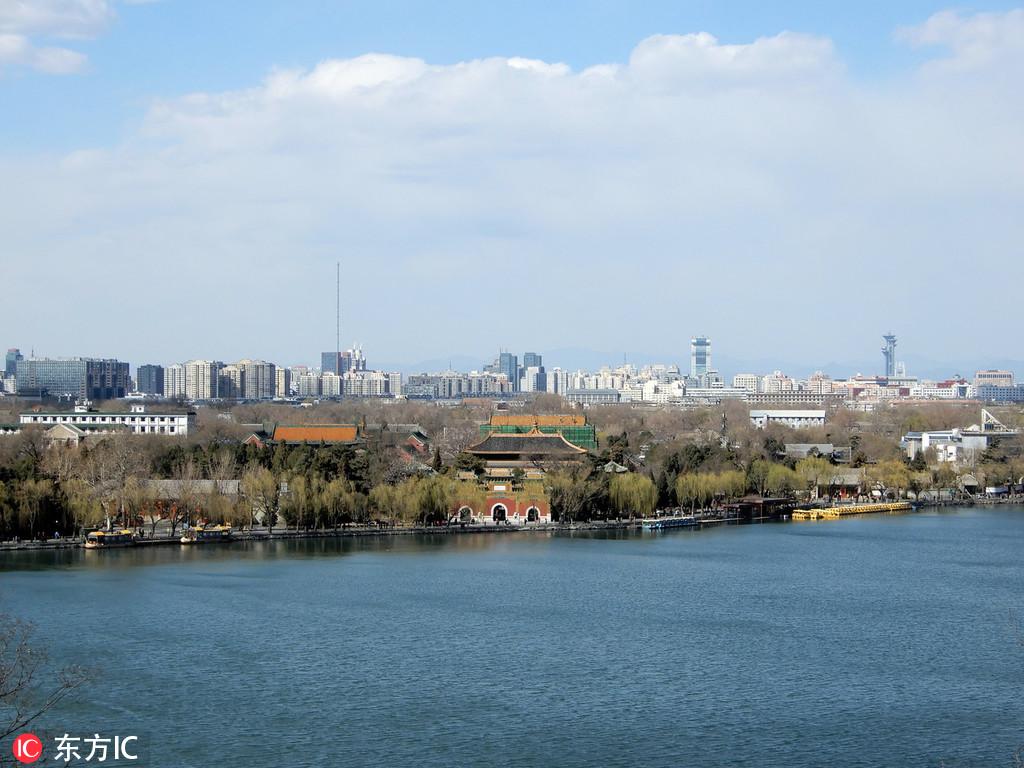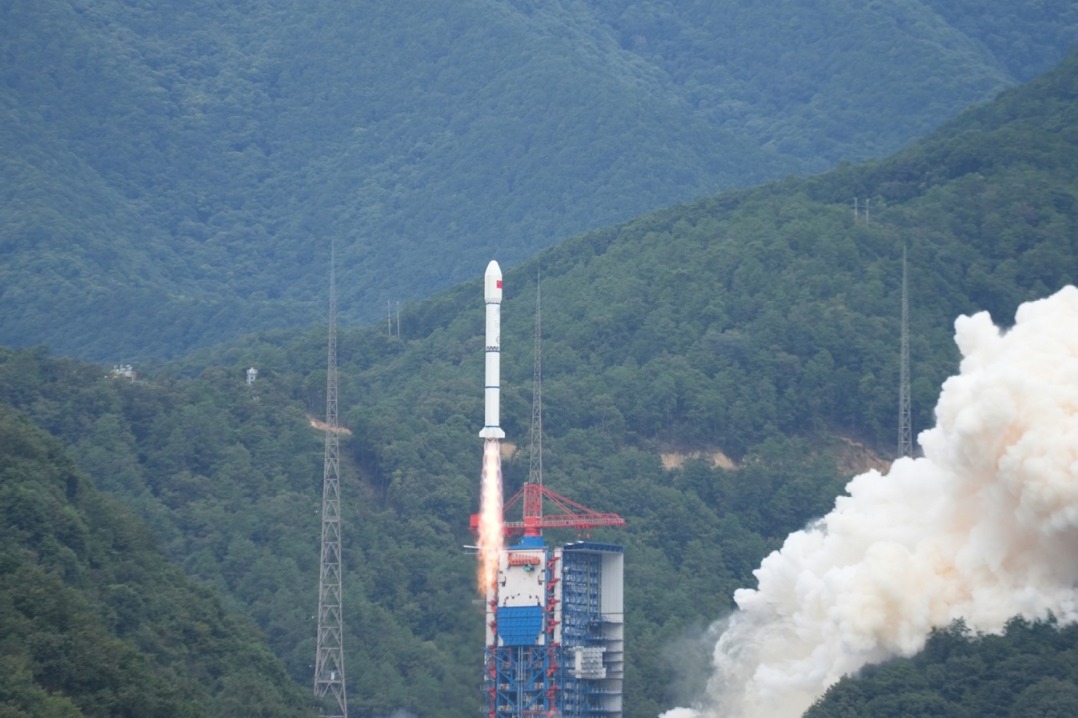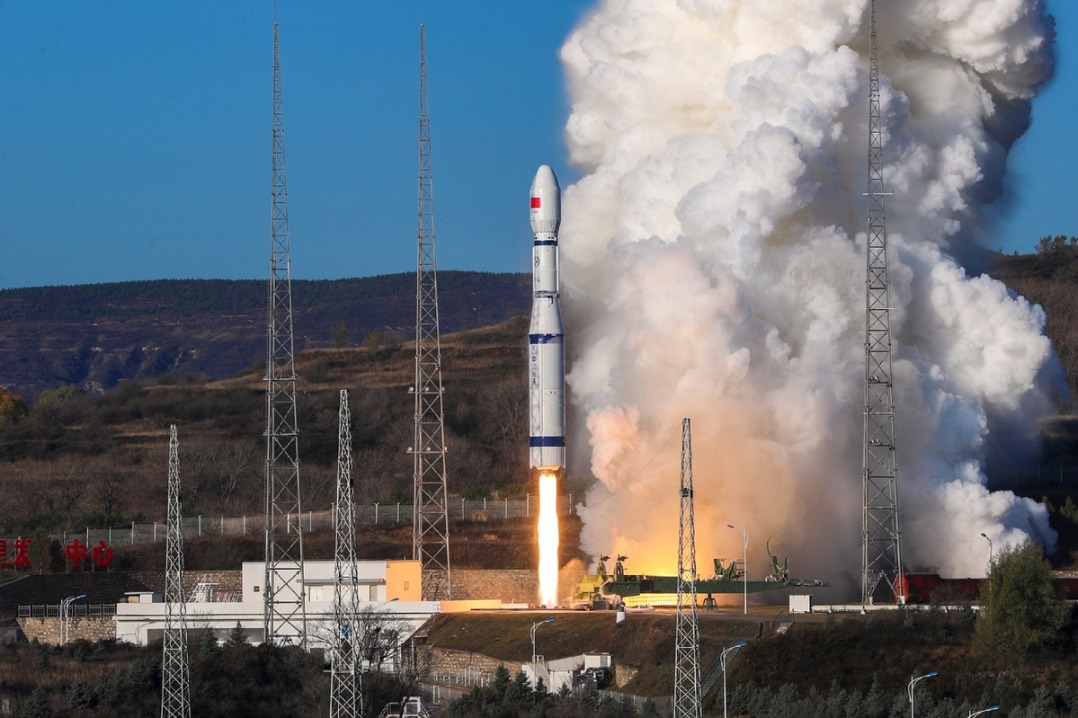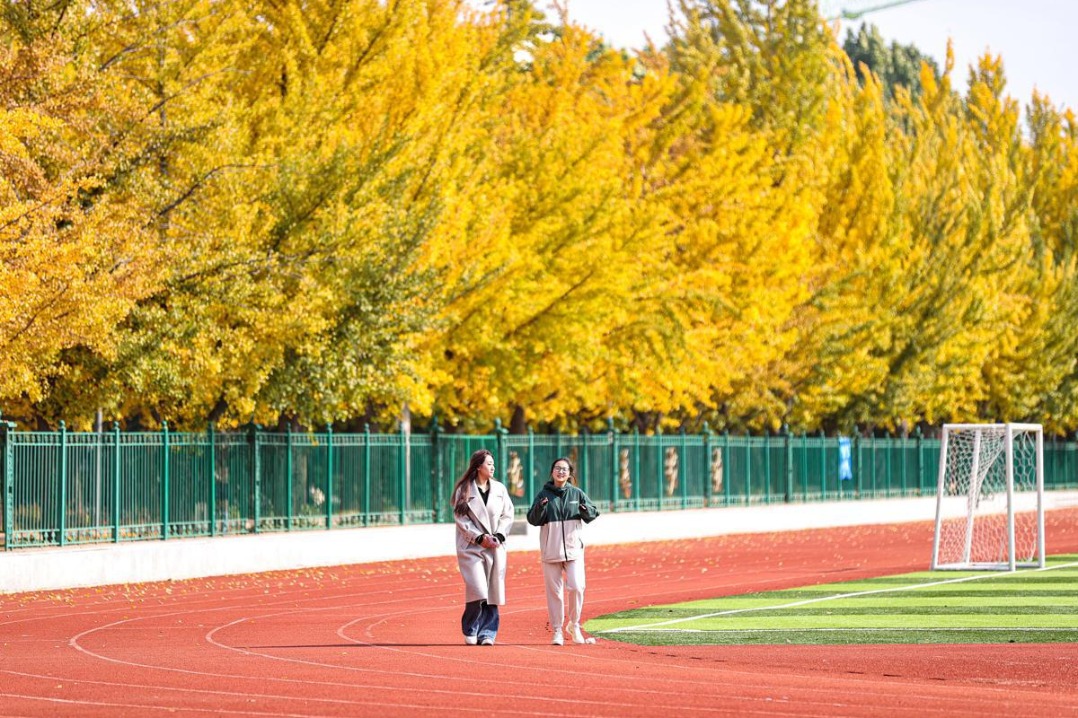Major strides in pollution control seen


Beijing has witnessed more blue skies, better water quality over recent years
The central leadership's unprecedented attention to environmental protection has played a big role in the country's progress on this front, and authorities will continue to provide impetus for the nation's green development, experts said.
They were speaking during the annual two sessions in Beijing during which international media outlets asked about how China managed to continuously improve its ecological environment in recent years.
China has seen more blue skies and improved water quality over the past few years. The average density of PM2.5 - tiny, hazardous particles in the air - in 338 major cities across the country, for example, fell 9.3 percent year-on-year in 2018.
Beijing made an even more notable improvement. The city is the only one worldwide that managed to reduce PM2.5 concentrations by over 10 micrograms per cubic meter in just one year, said Liu Bingjiang, head of the Ministry of Ecology and Environment's Air Quality Management Department.
The capital reduced the density from 73 micrograms per cubic meter of air in 2016 to 58 mcg/cu m in 2017. Last year, the level further fell to 51 mcg/cu m.
"This is a miracle never before seen," he said.
The improvements occurred due to the central leadership's resolution and determination in addressing environmental problems, experts said.
In 2017, President Xi Jinping, also general secretary of the Communist Party of China Central Committee, listed pollution control as one of three campaigns atop central authorities' agenda when speaking at the 19th CPC National Congress.
"Since Xi was elected general secretary in November 2012, he has given unprecedented importance to ecological protection," said Zhao Jinling, an environmental expert and also vice-president of Elion Resources Group, which managed to increase vegetation coverage of the Kubuqi Desert in the Inner Mongolia autonomous region to more than 50 percent from virtually zero three decades ago.
He said the attention from the central leadership has encouraged many people and companies to participate in the country's ecological progress.
"The mainstreaming of environmental protection is one of the things that China is really seeking to do," said Arthur Hanson, former president of the International Institute for Sustainable Development in Canada and international chief adviser to the China Council for International Cooperation on Environment and Development.
Environmental protection and climate change have really evolved from abstract concepts, and have gradually become part of people's daily lives in China.
"I think we're really at that stage where government puts a lot of attention on what people themselves feel," said Zhang Jianyu, founder and chief representative of the Environmental Defense Fund's China program.
Yu Xiang, an expert at the Chinese Academy of Social Sciences' Institute for Urban and Environmental Studies, said China has also increasingly given attention to climate change.
"President Xi has stressed on various occasions that tackling climate change is a requirement of China's sustainable development and also an obligation for the country as a responsible international power. He said China is tackling climate change not because it has been asked to do so, but out of its own willingness," Yu said.
She said the central leadership's attitude has helped many people turn to low carbon living and green consumption.
Hanson said China stands out in the world in many environmental-related areas. "One is green bonds, and another is ecological compensation. So also are planting trees and taking care of river basins. In the past year, they've been putting in place an environmental taxation system."
China is taking a series of approaches to reform in a very broad sense. It has strengthened its top environmental watchdog. "This is something that will play out, I think, in the coming years," he added.
In the latest institutional reshuffle, China established the Ministry of Ecology and Environment last year, which integrates environmental-related duties among seven central government bodies, including the former Ministry of Environmental Protection.
The reform is of great significance as it addressed the overlapping duties in pollution control and also integrated the previous diffused power structure covering environment governance, Li Ganjie, minister of ecology and environment, told reporters on Sunday on the sidelines of the second session of the 13th National People's Congress.
Thanks to the reform, his ministry has managed to launch two new pollution control campaigns aimed at curbing pollution in the Bohai Sea and the Yangtze River. Previously, the defunct Ministry of Environmental Protection had to coordinate with two other government bodies to launch such campaigns, and experienced difficulty achieving coordinated cooperation, Li said.
- About 20,000 non-Chinese Hong Kong permanent residents issued mainland travel permits
- Beijing's green development forum to feature Green Industry Expo
- Former Ningxia official sentenced in 80m yuan bribery case
- China advocates open intl sci-tech cooperation: vice-premier
- Tea connects China, Russia, Xi tells Putin
- Xi meets Indian PM Narendra Modi





































